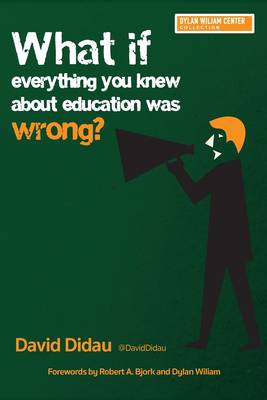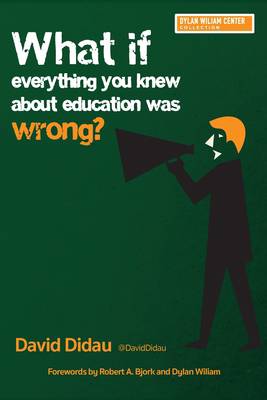
- Retrait gratuit dans votre magasin Club
- 7.000.000 titres dans notre catalogue
- Payer en toute sécurité
- Toujours un magasin près de chez vous
- Retrait gratuit dans votre magasin Club
- 7.000.0000 titres dans notre catalogue
- Payer en toute sécurité
- Toujours un magasin près de chez vous
Description
David Didau will question your most deeply held assumptions about teaching and learning, expose them to the fiery eye of reason, and see if they can still walk in a straight line after the experience. Combining his 15 years of classroom teaching, coaching, and consulting, David shares the tools to help you question your assumptions.
Spécifications
Parties prenantes
- Auteur(s) :
- Editeur:
Contenu
- Nombre de pages :
- 466
Caractéristiques
- EAN:
- 9781943920815
- Date de parution :
- 22-11-19
- Format:
- Livre broché

Les avis
Nous publions uniquement les avis qui respectent les conditions requises. Consultez nos conditions pour les avis.






